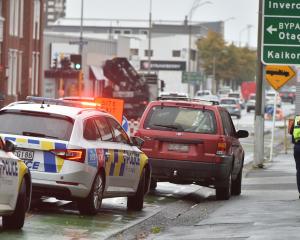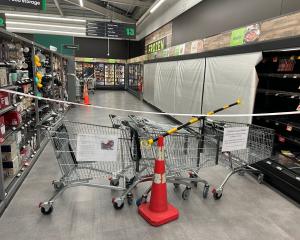
Penguin Place, the Yellow-eyed Penguin Trust, and Dunedin’s Wildlife Hospital have all faced significant pressure this year and some fear the fight for conservation could soon overshadow the fight for the endangered species.
The Yellow-eyed Penguin Trust requested about $255,000 over three years after funding for its science adviser was pulled, but this week its request was turned down by the Otago Regional Council.
Next week, the Dunedin City Council will decide whether to step up with nearly $300,000 over three years to keep the Wildlife Hospital Trust’s five-person staff intact after its corporate sponsorship dropped off and its fundraising dried up during the pandemic.
And while the owners of Otago Peninsula eco-tourism venture Penguin Place said the landmark business was put up for sale this autumn for personal reasons, a lack of tourist spending and the uncertain future of the business’s penguin rehabilitation facility has conservationists uneasy.
University of Otago zoologist Prof Phil Seddon said it was becoming hard to even run student projects because there were more players competing for yellow-eyed penguin funding than there were birds these days.
Yellow-eyed penguins (hoiho) and other well-known endangered animals were easier to gain funding for than other exceedingly rare but off the radar species, Prof Seddon said.
"But when you’ve got something as charismatic as a penguin, if you can’t rally support for that, on your back doorstep, then that’s crazy."
Part of the reason for the lack of support could be that news about the marine bird was "always doom and gloom", University of Otago researcher Thomas Mattern postulated.
Dr Mattern predicted the regional extinction of the species by 2060 or sooner just five years ago.
And since then, despite being crowned bird of the year in 2019, the news had become worse.
Unlike kakapo which inspired hope as its incredibly small population recovered, New Zealanders might be tired of backing a seabird struggling to survive here, he said.
"Sometimes it really seems hopeless, but at the same time, I don’t think that should be used as an excuse to not try," Dr Mattern said.
Forest & Bird Otago Southland regional conservation manager Rick Zwaan said if people wanted to bring nature back to the region and its coast it would require long-term investment by local and central governments rather than short-term contestable funding.
Councils that showcased wildlife needed to "put their money where their mouth is" and ensure people and places were adequately funded to prevent local populations of endangered species from going extinct, Mr Zwaan said.
But central government also needed to step up.
"The forecast is for conservation funding to decrease over the next four years, while the biodiversity crisis continues to get worse," he said.
Yet, the long-term decline of Otago’s hoiho population could be stopped, Wildlife Hospital Trust manager Jordana Whyte said.
"We could probably change this, but it’s certainly difficult to do when the groups can’t get the money," Miss Whyte said.
She thanked the city council for its support to date.
But she said after the disruption of Covid-19, as belts were being tightened, it seemed "in certain circles" conservation was being pushed down the priority list.
Yellow-eyed Penguin Trust general manager Sue Murray said the trust had been privileged to receive six years of funding from the regional council for a science adviser.
But she rejected the "gross assumption" that the trust was a wealthy organisation, which apparently led to its funding being cut.
There was a disconnect between the conservation of a species and the funding of the conservation, she said.
"It just saddens me that when the hoiho population is at such a critical state that we can’t get on with the work because we are so busy trying to find funding to do the work," she said.
Penguin Place co-owner Lisa King said until this year when the business received strategic tourism assets protection programme it had not received government support.
The sale was under negotiation and she was unable to comment further, she said.
She knew there had been "a lot of nerves" about the conservation work done at Penguin Place continuing, but the plan was that "everything that goes on here right now will continue in its same form", she said.
Comments
Unfortunately trying to save a wild animal's life is just not as popular as taking one. Maybe the penguin trust or wildlife hospital could partner up with Predictor Free Dunedin, they seem to have no problem with funding. Same applies to fisheries and animal agriculture research.











